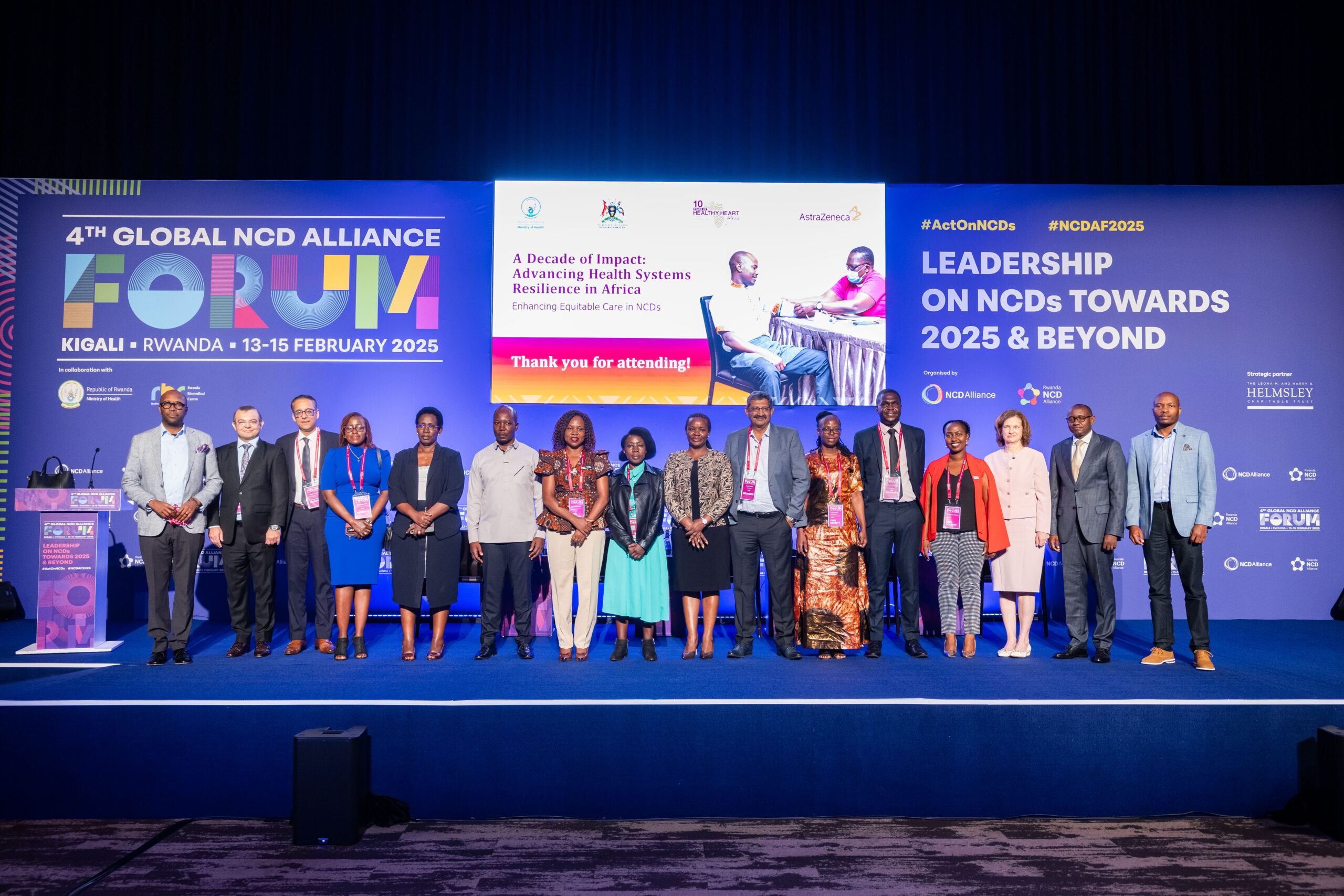Uganda is intensifying its fight against noncommunicable diseases (NCDs) by expanding the role of Community Health Workers (CHWs) to improve early detection and management of conditions like diabetes, hypertension, and cancer.
Speaking at the Global NCD Alliance Forum in Kigali, Uganda’s Permanent Secretary for the Ministry of Health, Dr. Diana Atwine, emphasized the urgent need for routine checkups and community-driven interventions to curb the rising NCD burden.
“Early detection is key to timely management when conditions are still reversible,” Dr. Atwine stated. “If left unchecked, NCDs can lead to costly treatments, lifelong challenges, or even death.”

To address these concerns, Uganda has strengthened its CHW program, training Village Health Teams (VHTs) and Community Health Extension Workers (CHEWs) to serve as the first line of defense against NCDs. These health workers undergo six months of intensive training on NCD awareness, risk factors, screening, and referral pathways. To enhance their effectiveness, they are equipped with blood pressure machines, glucometers, and tablets connected to Uganda’s electronic Community Health Information System (eCHIS) for real-time data collection and reporting.
The Ministry of Health, in collaboration with its partners, has also invested in improving CHW mobility by providing bicycles for efficient outreach. Additionally, each CHEW receives a monthly financial incentive of $50 to ensure consistent service delivery. “Motivated CHWs provide more effective and continuous care, leading to improved health outcomes and stronger, more resilient health systems,” Dr. Atwine noted.
Uganda’s approach aligns with global efforts to integrate NCD care into primary healthcare and strengthen partnerships with NGOs and international health organizations. As the country prepares for the 2025 UN High-Level Meeting on NCDs, Dr. Atwine called for increased investment in CHW training, support, and expansion to ensure that every Ugandan has access to life-saving screenings and treatment.
The Global NCD Alliance Forum also featured discussions on sustainable health interventions, public-private partnerships, and the role of integrated patient pathways in reducing the NCD burden across Africa.